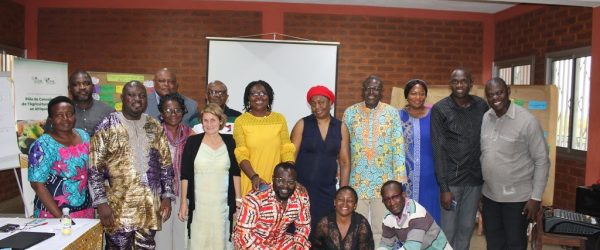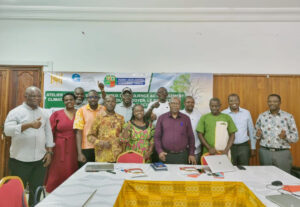The International Circle for the Promotion of Creation (CIPCRE) in Bafoussam, hosted last Thursday, December 8, the planning workshop for Phase II of the KCOA project. About fifteen participants representing the five partner organizations implementing the project, including Inades-Formation Cameroun, SAILD, CIPCRE, CPF and GADD, took part in this two-day workshop. This workshop was closed by a field visit.
The planning workshop for phase II of the KCOA project was opened by Stefanie ZEISS, KCOA Program Officer at GIZ.
It allowed for capacity building of participants on knowledge management and sharing of knowledge and experiences among participants. Through role-playing exercises, participants were able to better understand the process of setting up bodies for the analysis, production, validation and storage of knowledge products.
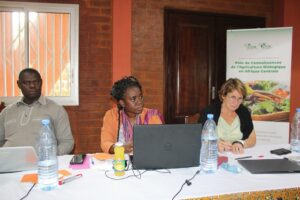
One of the highlights of the first day was the focal point carousel. This exercise allowed each focal point to take stock of its activities. For example, with regard to monitoring and evaluation, the main indicators were presented by expected project result. Following this presentation, exchanges and discussions led to the consideration of these indicators of change in the implementation of the project. The second day of the workshop was devoted to the planning exercise of the activities of the second phase of the project. To achieve this, participants brainstormed in groups and by project component (Knowledge Collection, Validation and Preparation, Knowledge Dissemination, Networking). These group discussions took up most of the time on the second day.
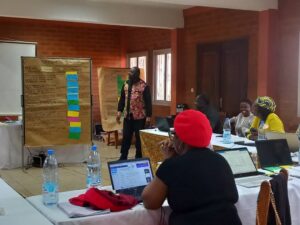
Presentation by Mr. MEIGNO Raphael of the planning of phase II of the activities of Inades-Formation Cameroon
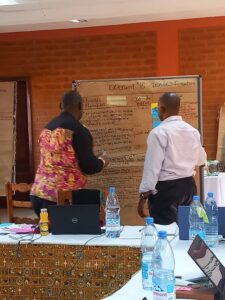
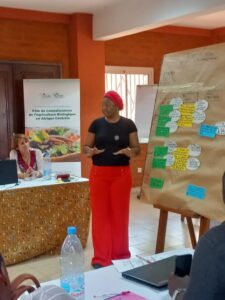
At the end of the workshop, Mrs. Stefanie ZEISS, KCOA program officer, based in Germany, acknowledged that she had globally appreciated her stay in Cameroon in the following terms: “I am very happy to know you and to have visited your work contexts. I was very touched by your skills and kindness. We will walk together very efficiently”.
A field visit to appreciate the work of the project’s beneficiaries
At the end of this workshop, a field visit was organized on Saturday, December 10, 2022 in the West Cameroon region, more precisely in the localities of Mbapit, Bamendzi and Bandjoun. A delegation composed of representatives of partner organizations implementing the ACCP project took part. This visit allowed to appreciate the level of realization of the ecological agro practices realized on the technical, economic and environmental levels. The different knowledge products were presented to the visitors by the operators as well as their implementation techniques.
The farmers we met use organic fertilizers and pesticides on their farms. They manufacture them and claim that these inputs contain chemical elements such as ammonia and urea. These natural pesticides and fertilizers not only make it possible to make back with the chemicals of synthesis, but also to make savings. In one of the villages visited, a farmer describes the process by which he collects urine from rabbits. “To start, I place plastic on the floor in a hutch corner where the rabbits urinate. The plastic is angled toward a pipe that drains the urine to a canister under the hutch,” he explained. In one week, the young farmer says he collects up to three liters of urine a day. He reminds us that the rabbit is an animal that urinates in the same place. Once the urine is collected, he mixes it with cornstarch and molasses and lets it ferment for about three weeks. Then, he dilutes one liter of this mixture in twenty (20) liters of water. The resulting mixture is used as pesticide or fertilizer.
In Bamendzi, another farmer says that his vegetables are doing very well because he is able to control pests cheaply with organic pesticides. According to these operators, the spraying of these organic pesticides helps to control pests effectively.
Some illustrations in pictures:
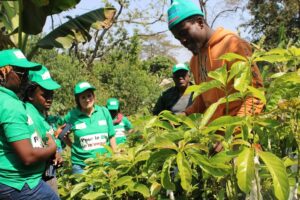
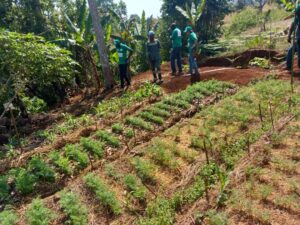
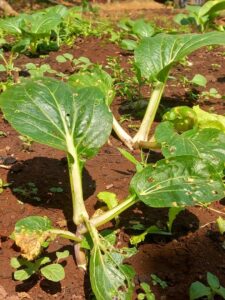
As a reminder, the general objective of the KCOA project is to create an innovative strategy to promote Organic Agriculture in Cameroon, and more globally, in Central Africa. The specific objective is to gather traditional and scientific knowledge gathered from fieldwork, publications and books, to share technical and methodological agricultural knowledge adapted to the different African contexts and to participate in the creation of networks between the different actors within and between the clusters.
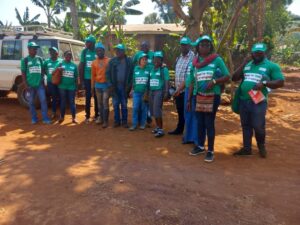
After an initial implementation phase, Cameroon will, as of April1, 2023, begin the second phase of this pan-African project.
Photo library of the workshop (photos)
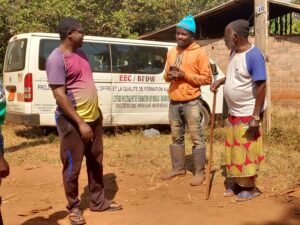
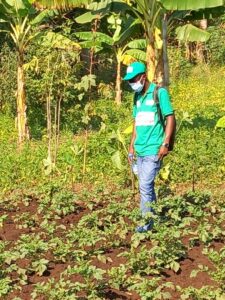
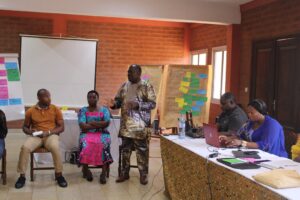
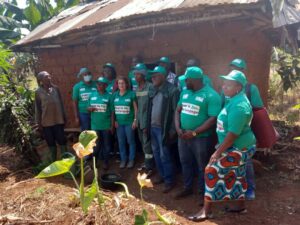
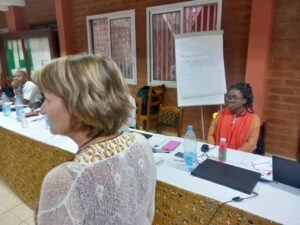
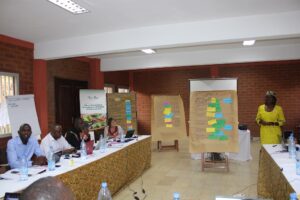
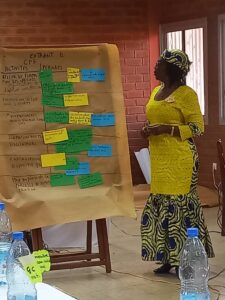
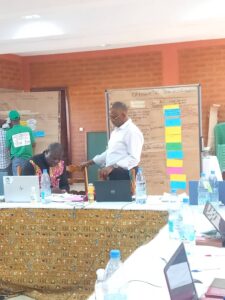
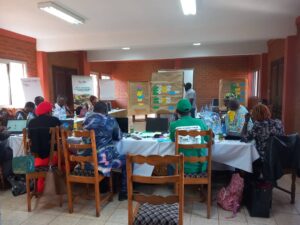
Marguerite Ngo MOMHA , communication Inades-Formation Cameroon.

